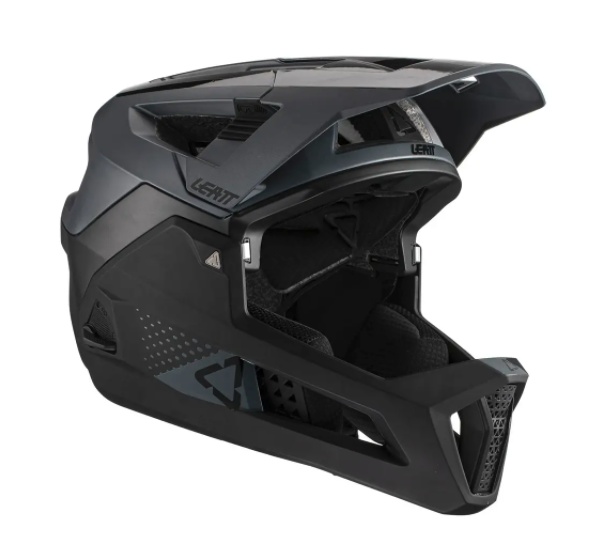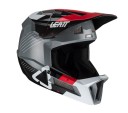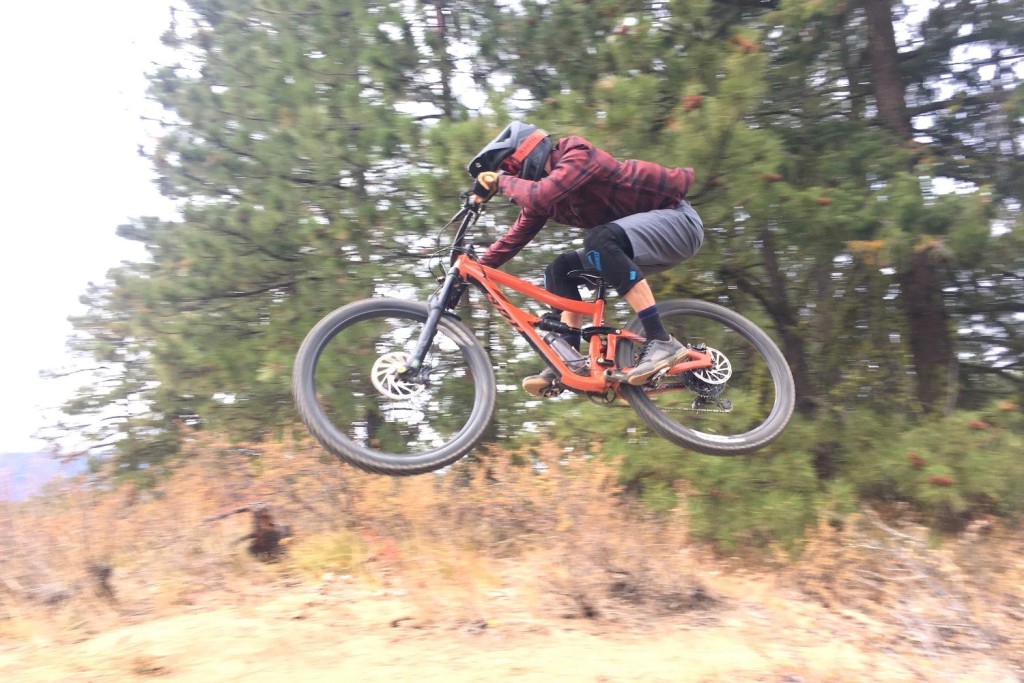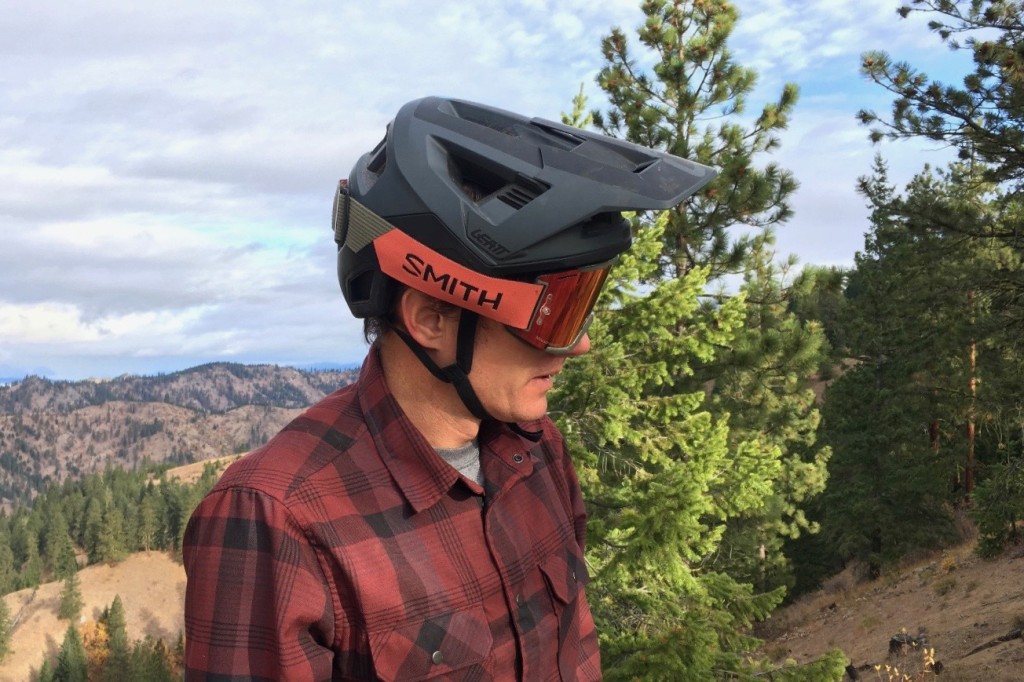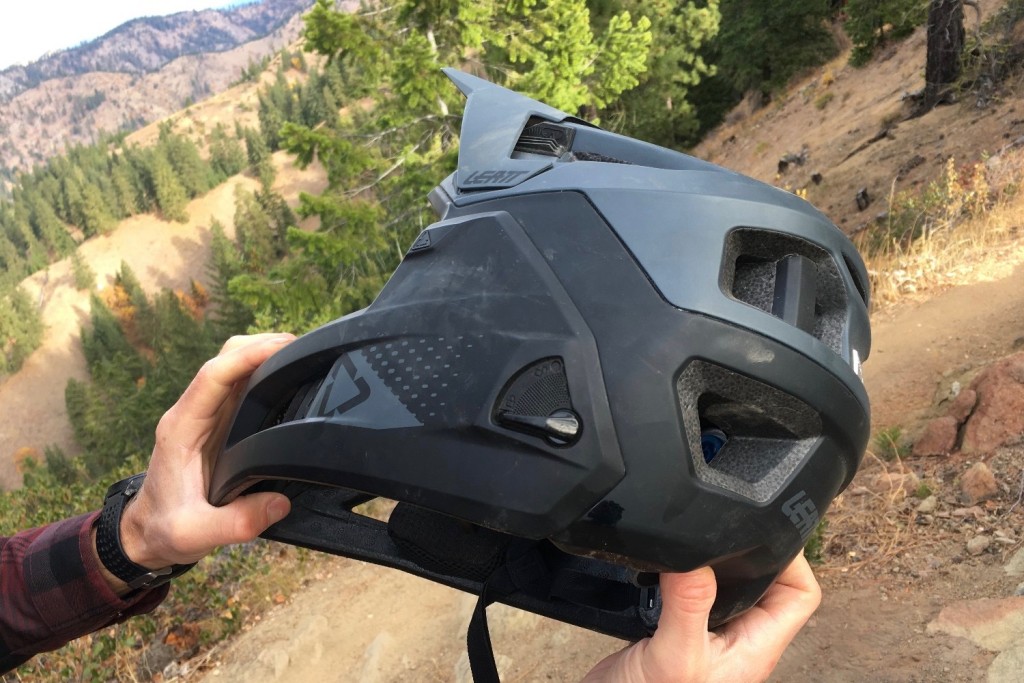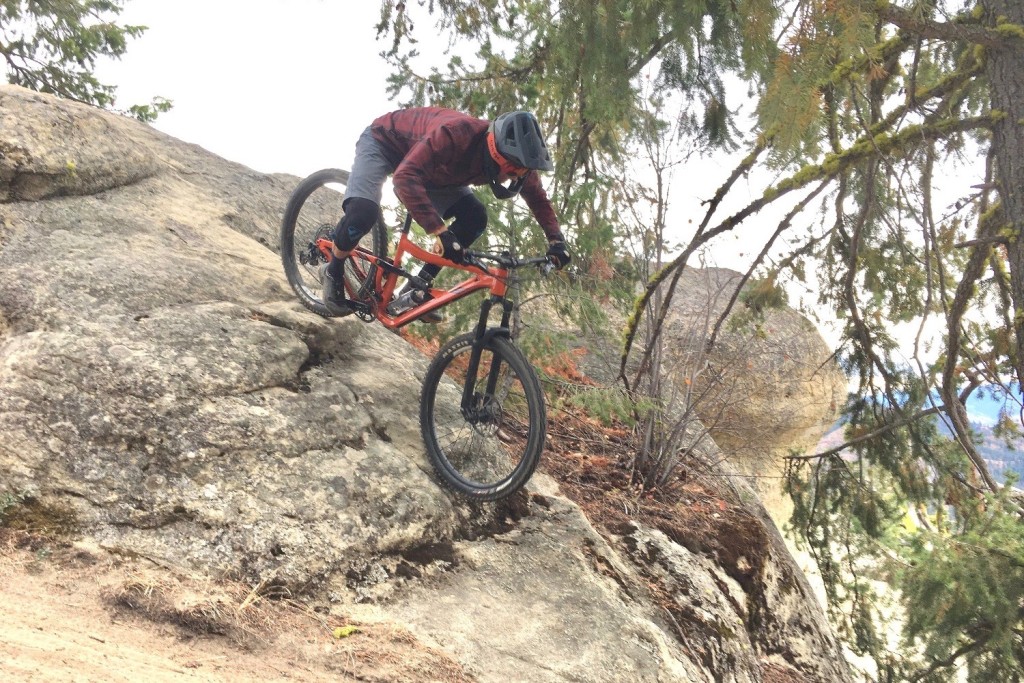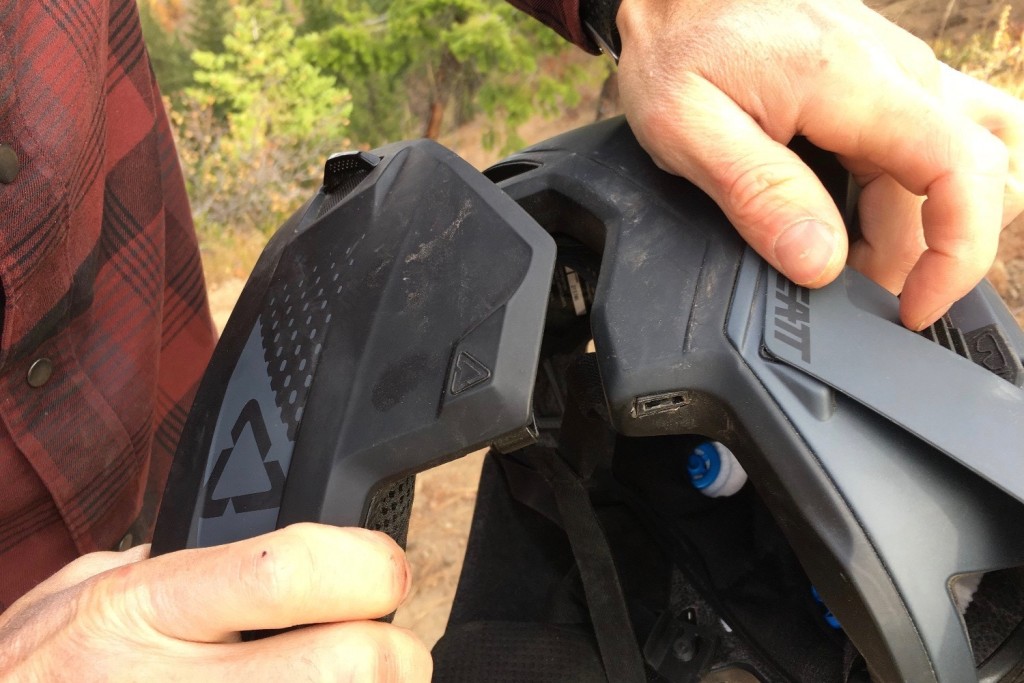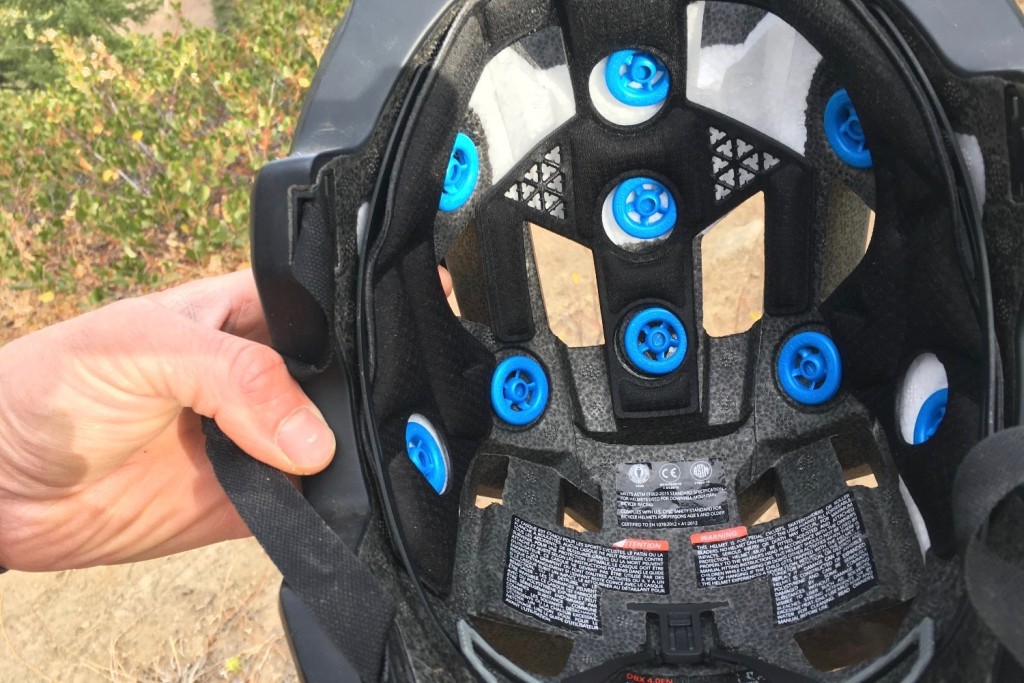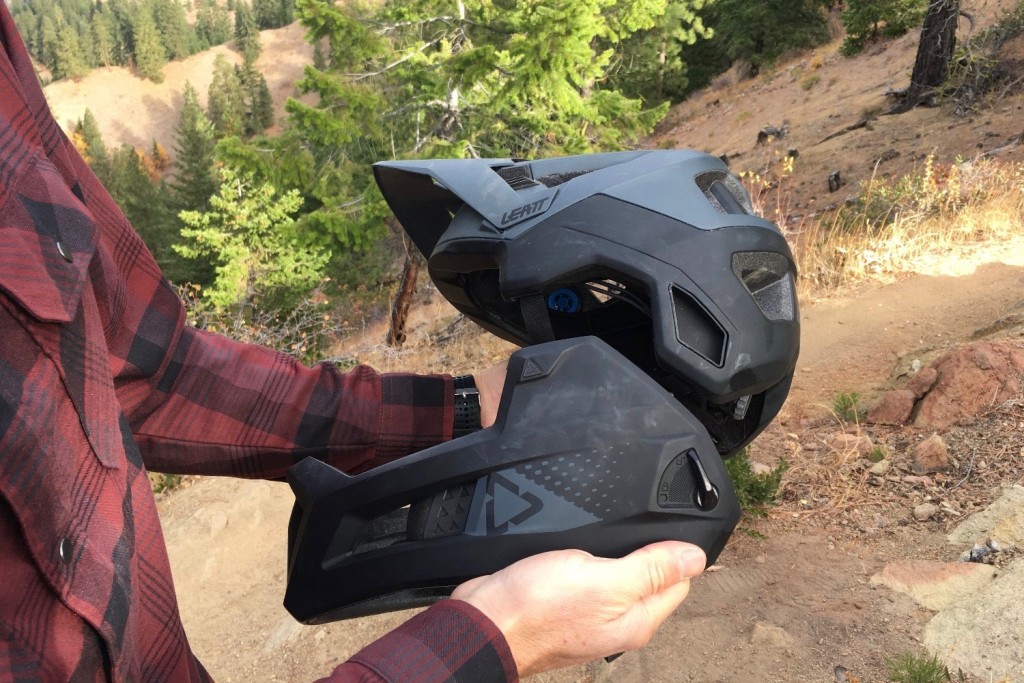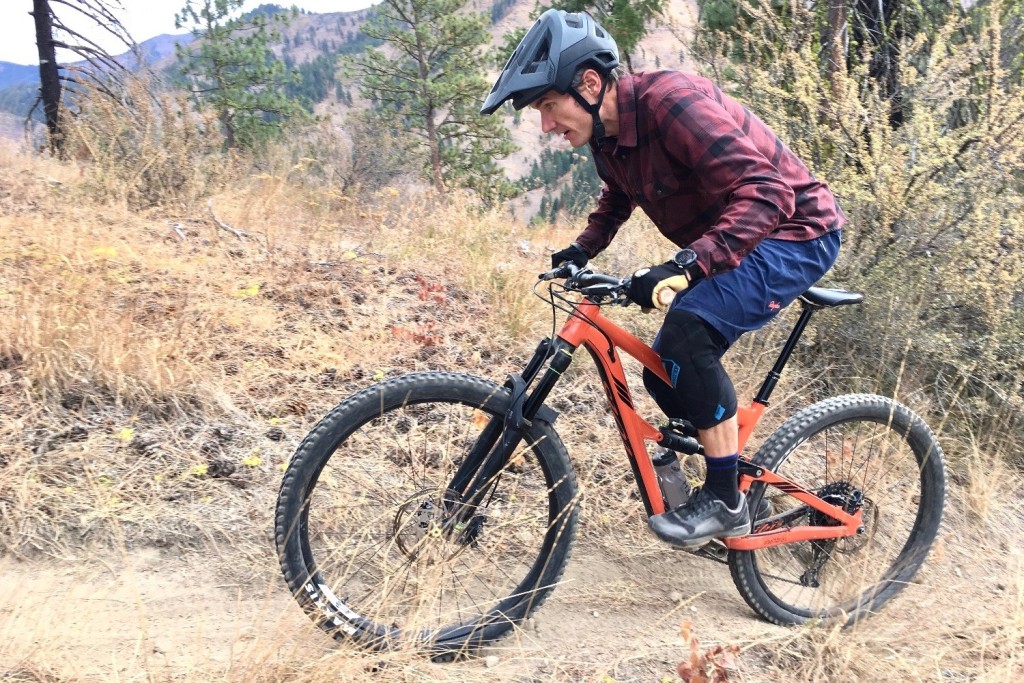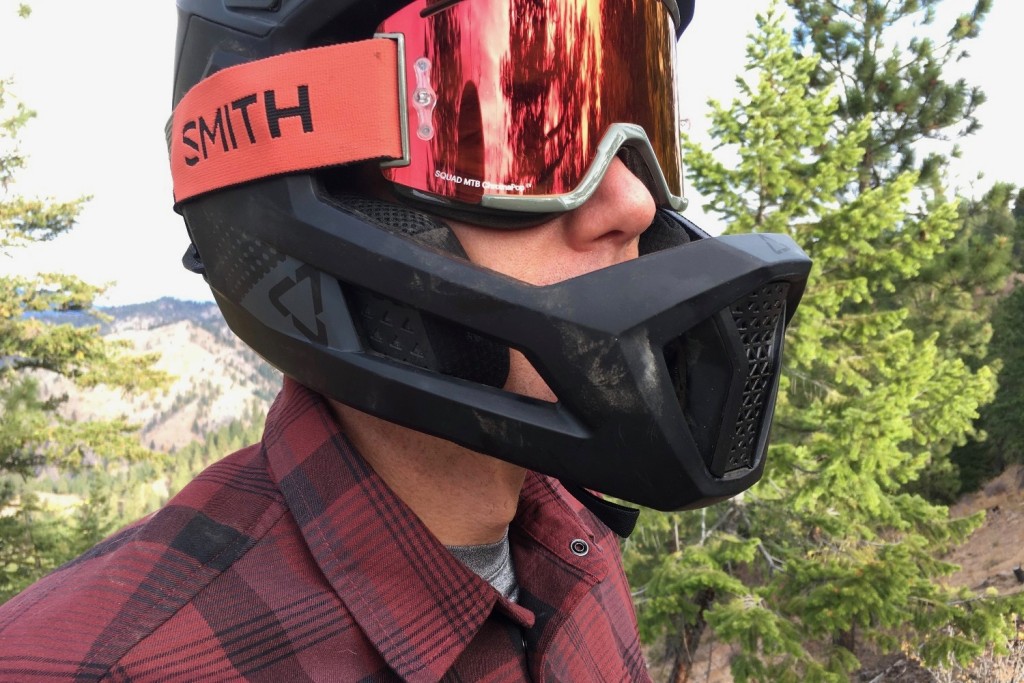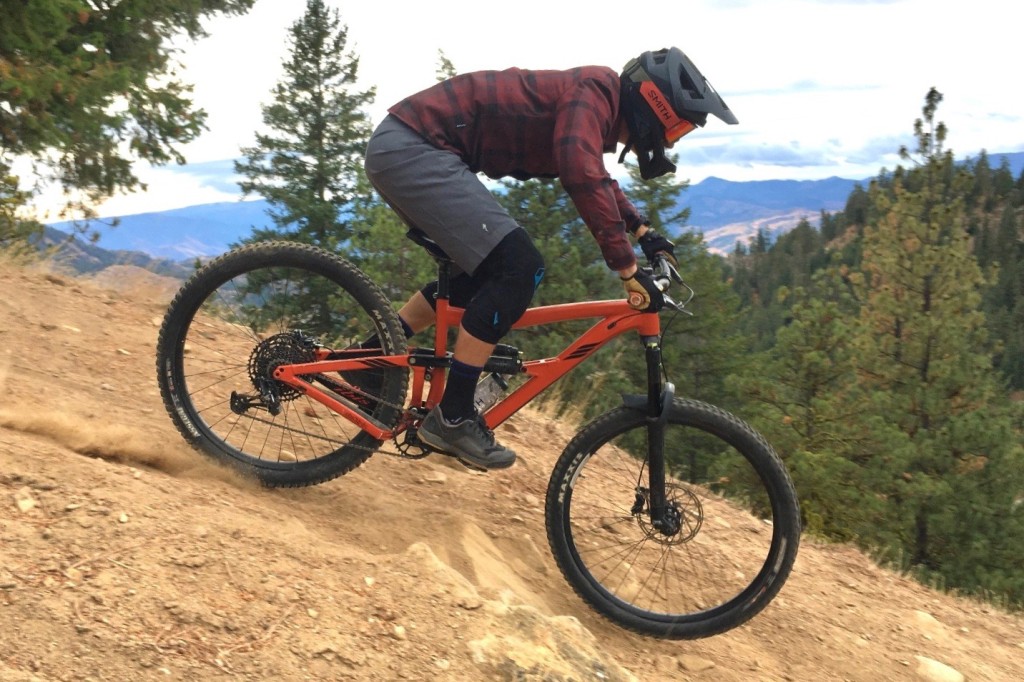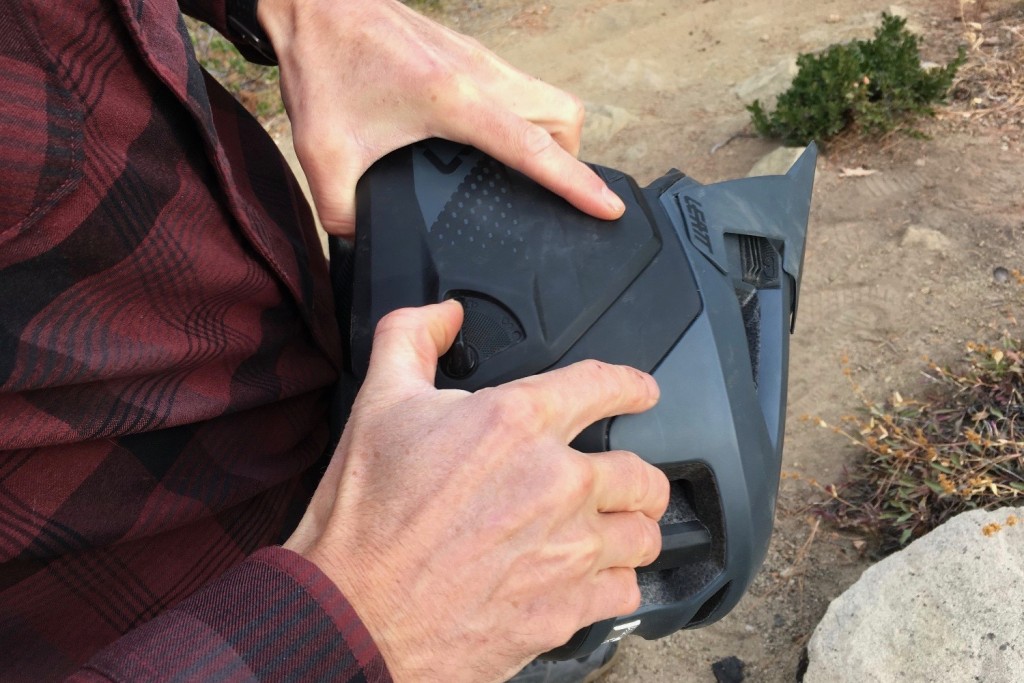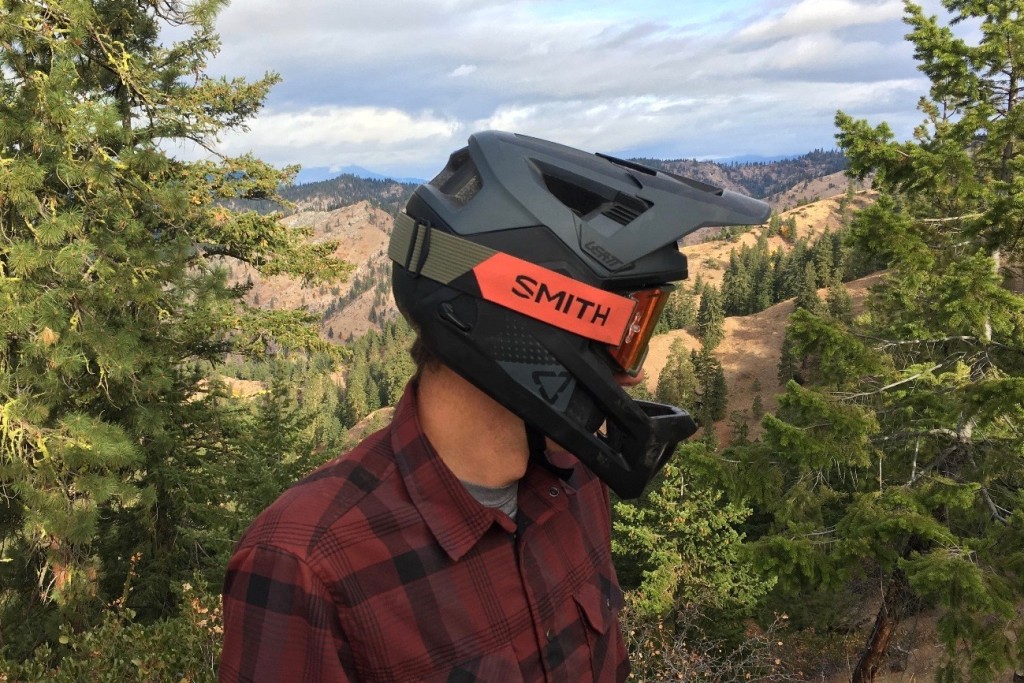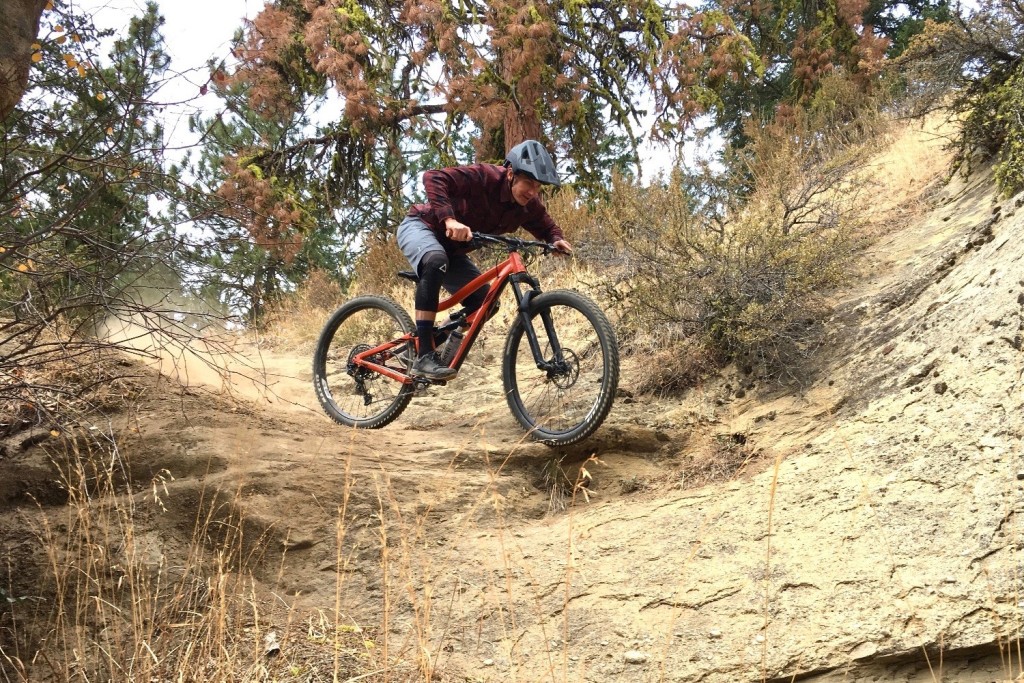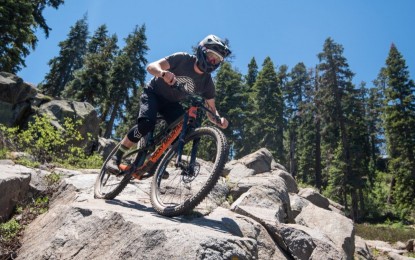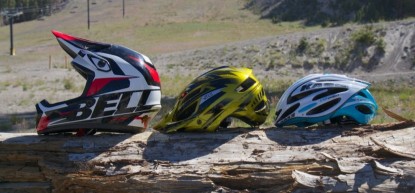Leatt MTB 4.0 Enduro Review
Our Verdict
Compare to Similar Products
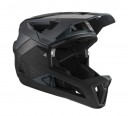 This Product
Leatt MTB 4.0 Enduro | |||||
|---|---|---|---|---|---|
| Awards | Best Overall Full Face | Best Balance of Price and Performance Downhill Helmet | Best Buy Downhill Helmet | ||
| Price | $300 List $149.99 at Backcountry | $269.95 at Amazon Compare at 5 sellers | $149.95 at Evo Compare at 3 sellers | $170 List $149.99 at Amazon | $110 List $69.99 at Amazon |
Overall Score  |
|||||
| Star Rating | |||||
| Bottom Line | A convertible full-face helmet that carries a DH certification and offers a comfortable fit | A killer enduro lid that works well for shuttle laps or the racecourse | A park-worthy helmet at an attractive price that offers serious protection | A comfortable helmet with solid protection levels at an excellent price | A solid-performing downhill helmet at an outstanding price |
| Rating Categories | Leatt MTB 4.0 Enduro | Smith Mainline Mips | Troy Lee Designs D3... | Leatt Gravity 2.0 | 7Protection M1 |
| Comfort (25%) | |||||
| Protection (20%) | |||||
| Weight (20%) | |||||
| Ventilation (15%) | |||||
| Visor (10%) | |||||
| Durability (10%) | |||||
| Specs | Leatt MTB 4.0 Enduro | Smith Mainline Mips | Troy Lee Designs D3... | Leatt Gravity 2.0 | 7Protection M1 |
| Weight (grams, size medium) | 847 grams | 765 grams | 1219 grams | 1008 grams | 947 grams |
| Weight (ounces, size medium) | 17.6 oz half shell 29.9 oz full face | 27.0 oz | 43.0 oz | 35.5 oz | 33.4 oz |
| Number of Vents | 18 | 21 | 20 | 11 | 17 |
| Shell Material | Lightweight Polymer | Aerocore | Fiberglass | Polymer | Polycarbonate |
| Rotational Impact Protection System | 360 Turbine | MIPS | None | 360 Turbine | None |
| Sizes | S, M, L | S, M, L | XS, S, M, L, XL, XXL | XS, S, M, L, XL, XXL | Youth M, Youth L, S, S, M, L, XL |
| CPSC | Yes | Yes | Yes | Yes | Yes |
| CE EN1077 | No | No | Yes | No | No |
| CE EN1078 | Yes | No | Yes | Yes | No |
| ASTM F1952 (DH) | Yes | Yes | Yes | Yes | No |
| ASTM F2032 | No | No | Yes | No | No |
| ASTM F2040 | No | No | No | No | No |
Our Analysis and Test Results
Testers found a lot to like about the MTB 4.0 Enduro helmet. This helmet is a great option for riders who want one helmet to serve as both a half-shell or a full-face depending on the ride. Wear it as a half-shell for more casual trail rides, throw the chin bar on for big shuttle days, or the next enduro race. E-bike riders may also like the idea of a light and breathable, DH-certified, full-face helmet. We found it to be comfortable and well ventilated in either mode, with the added peace of mind that the DH certification provides.
Performance Comparison
Comfort
The MTB 4.0 Enduro is a comfortable helmet. In half-shell and full-face mode, the helmet is pleasant on the head and there are no pressure points or zones that cause irritation. It comes in three shell sizes, S-L, and we felt that our medium fit more or less true to size.
Like a regular half-shell helmet, the MTB 4.0 Enduro has an adjustable harness/cradle system to pull tension around the head along with minimal but effective padding. The padding doesn't interfere with the vents, and it also has circular cutouts for the Turbines. The shape of the helmet is agreeable and it should fit a variety of head shapes well. It is worth noting, however, that in half-shell mode, the helmet does feel like it’s sitting a bit high on your head. We have experienced this same feeling with other Leatt helmets we've tested. Functionally, it is a non-issue as it doesn’t shift around or move as you bounce over trail obstacles, but the fit doesn't feel quite as deep as some other helmets despite the coverage being good. This lid uses a magnetic Fidlock buckle system that is simple and easy to use. You can buckle and unbuckle the helmet easily with one hand and the closure is secure. The strap splitters by the ears are fixed in position, luckily they didn't interfere with our ears.
In full-face mode, this lid remains quite comfortable. There are cheek pads on the chin bar that help to hold the helmet securely, and it comes with two thicknesses of pads so you can dial in the fit for your face. It works exceptionally well with goggles, has a light and airy feel to it, and doesn't shift around while riding. It should be noted that in full-face mode, the helmet becomes a little harder to put on your head. It helps to loosen the BOA-style retention dial and re-tighten it when the helmet is on.
Protection
The MTB 4.0 Enduro is DH-certified. This is noteworthy as not all enduro-style or convertible full-face helmets carry a downhill certification. It adds a sense of security and confidence when blasting down your favorite rowdy trail. Despite the DH certification, it still doesn't feel as burly or protective as true DH helmets. Yes, it is DH-certified, but folks racing DH or riding super aggressive freeride lines may want to consider a more robust helmet. That said, we feel this helmet offers good protection for a wide range of uses from trail riding, enduro racing, and even bike park use.
The main body of this helmet is constructed of a lightweight polymer shell with in-molded EPS and EPO foam. The idea behind dual foam densities is that is supposed be able to absorb energy from both high and low-speed impacts. In half-shell mode, the helmet provides a high level of coverage and drops down nice and low at the back of the head. Once the chin bar is attached, it provides significantly more coverage, obviously, and the helmet has a very solid feel.
Inside the shell is Leatt’s 360 Turbine system. Inspecting the inside of the helmet you will see a smattering of blue, circular Turbines. The Turbines are somewhat soft and you can wiggle them a bit with your thumb. Leatt makes some bold claims about the effectiveness of the Turbine system; up to a 30% reduction in peak brain acceleration and up to a 40% reduction in peak brain rotational acceleration. While we can't pass judgment on the actual effectiveness of this system, they do seem like they can potentially absorb some linear and rotational force, and that seems like a good thing.
Weight
Our size medium MTB 4.0 Enduro weighs 29.9-ounces or 848-grams in full-face mode and 17.6-ounces or 499-grams in half-shell mode. It is on the lighter side of the spectrum in terms of convertible helmets and is the lighter of the two DH-certified convertibles we tested by a narrow margin.
On the trail, the helmet feels light in both settings. You can find lighter convertible helmets, but we think having a DH-certified lid is worth a few extra ounces.
Ventilation
This lid has 18-vents. Five are located on the chin bar and 13 are located on the upper helmet. The ventilation levels are above average in terms of the test class as a whole. That said, other lightweight full-faces do offer better chin-bar ventilation.
On the chin-bar, there are five vents. In the center, there is a vent with a protective plastic webbing to keep debris out. To the left and right, there are two vertical vents. Moving outward, there are slightly larger horizontal vents. This chin bar offers pretty good levels of airflow. There are helmets with larger ports that allow much more air to pass through. That could be valuable for enduro racing or e-bikers who plan to do lots of pedaling with the chin bar on. Riders who simply want to attach the chin bar at the top of the climb and shred down will likely be happy enough with the ventilation.
The upper portion of the helmet is exceptionally well-ventilated. It is in line with most trail riding helmets. The thirteen vents are average in terms of size. Two large intake ports above the brow are the most noticeable on toasty or humid days. Two large vents at the top of the head allow heat to escape and the rear of the helmet has a smattering of exhaust vents. It is worth noting that some of the exhaust vents at the back of the helmet may be obstructed by the goggle strap if/when you wear goggles. Even with these vents covered by a strap, this helmet still ventilates quite well.
Visor
The MTB 4.0 Enduro has an interesting visor. While we love the shape, length, and construction of the visor, but the adjustment system is a bit odd.
The visor is a bit longer than average. It doesn’t actually protrude too far beyond the brow of the helmet, but visually it looks long. This is likely due to how far back on the helmet the visor starts. The visor begins wide and tapers to about 6-inches at the end. It is neither broad nor narrow. The visor material is relatively pliable. This allows it to twist and bend without cracking or snapping too easily. The visor has a breakaway system. In the event you crash onto the visor, it detaches from the helmet. Below the visor, two rubber pads are designed to grip sunglass arms so you can securely stow them while riding.
The visor has three adjustment positions. The way you adjust the visor is a little primitive and clunky. The visor has two anchor points, one on each side of the head. To adjust the visor position, you need to pull outward on the visor at these anchor points. A snap-in tab on the visor pulls out of a slot at the anchor point. Select a different position and snap the visor back in. We understand that this design aspect is one reason the visor can break away from the helmet. That said, it is not the easiest way to adjust your visor. Some other helmets have breakaway visors that are much simpler to adjust.
Durability
We have one primary concern in relation to durability. This mostly surrounds the removable chin bar system. This is a sensible time to dive into exactly how it functions. We found it is best to perform this procedure without the helmet on your head.
To remove the chin bar, locate the tabs/levers near the ears. Flip the levers to the unlocked position. This can require more force than you might expect. Once unlocked, firmly pull the chin bar forward to unhook it from the main body of the helmet. This movement takes some getting used to. You need to give it a good, solid pull. Once you have done it a few times, you will get an idea of the exact motion. Repeat this step on the other side. To reattach the chin bar, perform these steps in reverse.
It is a little concerning exactly how much pressure you need to put into the small, plastic, lever mechanism. It actuates a hook system that needs to turn in and out of its position. We are worried about the connection between lever and hook system snapping. We have used the removable chin bar feature on approximately 30 rides and it is still going strong. There are no signs of it potentially failing but it is definitely an area of concern.
Extras
This helmet did not come with any notable extras. It should be mentioned that, in recent years, fewer and fewer manufacturers are including extra items such as replacement visors.
Value
This helmet represents a solid value. No, we don’t exactly love the system for removing and attaching the chin bar, but aside from that quirk, this is a highly-functional and comfortable, DH-certified convertible helmet. It could make a lot of sense for a lot of riders. Sure, the price is on the higher side, but it is much more affordable than buying a half-shell helmet and a full-face helmet.
Conclusion
The Leatt MTB 4.0 Enduro is a slick-looking, DH-certified, convertible helmet. If your idea of fun is a big fire road climb followed by a big, spicy, descent, this might just be the helmet for you. It is exceptionally comfortable, has nice levels of ventilation, and has great protective features. Yes, there are convertible helmets with easier-to-use chin bar attachment systems. Still, this versatile lid can span a wide range of needs and riding styles.


